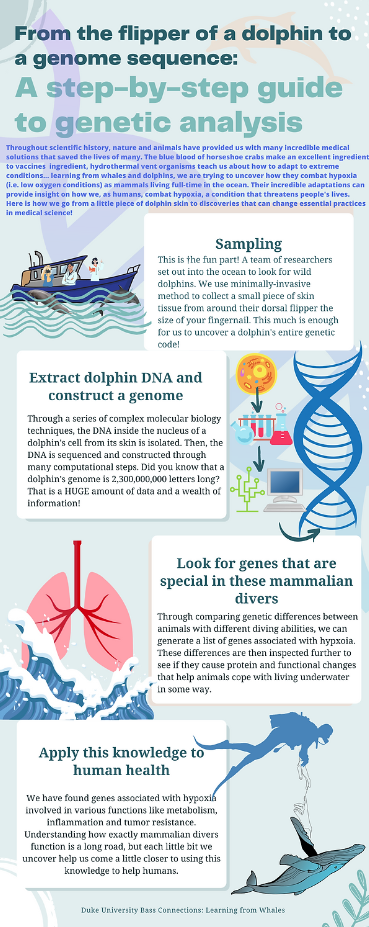The Cellular Secrets to Whales' Deepest Dives
Project Team
Team profile by Natalie Kubicki and Ava Leaphart
The average human can hold their breath for about 60 seconds. The goose-beaked whale (Ziphius cavirostris) has the longest and deepest foraging dives of any mammal species, with a longest recorded dive of 222 minutes. The goose-beaked whale and other marine mammals do not experience the negative responses that other mammals would during three hours without taking a breath. The physiological responses of these marine mammals are well studied, but the underlying cellular adaptations are hardly understood.
Our team researched marine mammal adaptations to low oxygen conditions through dolphin population genetics and multi-level cellular analyses. We used several different approaches to continue to gain a comprehensive understanding of these adaptations.
We used RNA sequencing to analyze the genetic composition of the bottlenose dolphin (Tursiops truncatus) population ranging from off the coast of North Carolina to northern Florida. We quantified mitochondria, collected and analyzed metabolomic data and developed energetic profiles of marine and terrestrial mammal species. We are also working to create pluripotent stem cells from fibroblast cell lines for organoid creation and future experimentation. We look forward to applying our research to environmental policy, human health and ecological fields.
Our work culminated in the Learning from Whales team website. We have created a comprehensive resource with the progress that our Bass Connections team has made over the years. Showcasing our shared mission, profiles on the current and past team researchers, and the numerous different research projects that we continue to build on as a team, our website highlights the importance of collaborative, cumulative science.

